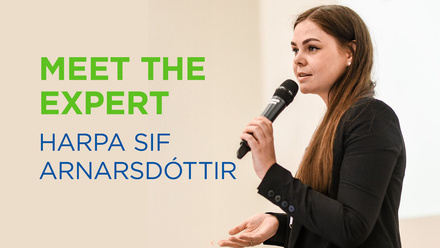MSCA Doctoral Networks: 3 routes to structured collaboration

The Marie Skłodowska-Curie Actions (MSCA) – the European Union’s flagship funding programme for doctoral education and postdoctoral training of researchers – comprise five separate ‘actions’ which share a core set of principles. These include a focus on training, transferable skills and researchers’ career development, openness to the world, openness to all fields of research, structural impact on participating organisations, emphasis on intersectoral collaboration, and insistence on providing attractive and fair employment conditions. Of the MSCA’s overall seven-year budget of €6.6 bn, 50% is allocated to Doctoral Networks (DNs), which will be the focus of this blog post.
It is no coincidence that MSCA do not directly offer single doctoral fellowships to individual researchers; rather, the MSCA-DN grants are offered to consortia of institutions that submit proposals together which, if successful, receive several DN fellowships to subsequently recruit doctoral fellows in line with their project objectives. In doing so, MSCA-DNs aim to create structural links among institutions in consortia that usually include both the academic and non-academic sectors. As such, international, intersectoral and interdisciplinary doctoral programmes are created for the lifetime of these projects, with the hope of partnerships continuing after the projects’ end.
With these objectives in mind, there are two more specialised types of DNs: namely, the MSCA Industrial Doctorates (ID) and Joint Doctorates (JD). When applying, consortia are free to choose which of the three types to apply for. The proportion of how many projects of each type the MSCA fund each year can therefore be seen as a reflection of the interest/demand within the research community. In a typical year, the distribution comes approximately to 80%, 13% and 7% for DNs, IDs and JDs, respectively. Given their strategic value, which I will discuss below, it is natural that the Commission would like to see more JD and ID partnerships.
Joint Doctoral programmes: facilitating collaboration between HEIs
The MSCA Joint Doctoral (JD) programmes were introduced in 2014 with the launch of the Horizon 2020 programme, following the discontinuation of the Erasmus Mundus Joint Doctorates. There are clear direct benefits of joint doctorates to doctoral candidates, universities and employers. By pooling resources, universities can attract better candidates, gain more international visibility and increase their ability to develop strategic partnerships. Doctoral candidates have access to a larger portfolio of courses, expertise and infrastructure, which improves their academic outputs and their attractiveness to employers.
Additionally, there is also the strategic long-term importance of joint doctorates when viewed in the context of the overall strategies of the European Union for growth and global attractiveness. JD programmes are ideal in acting as catalysts for structuring collaboration among higher education institutions (HEIs). Consortia have to establish joint operational procedures for recruitment, admission, supervision and evaluation of doctoral candidates. By doing so, and given the ripple effect on the participating HEIs, joint doctoral programmes exert a positive structuring effect on participating partners whereby the collaboration culture and the needed administrative flexibility gradually become the norm in those HEIs.
JD programmes are ideal in acting as catalysts for structuring collaboration among HEIs
However, it is no secret that the set-up of joint doctoral programmes comes with challenges predominantly connected to national or institutional regulations, rules and cultures. Since higher education is a competence of the EU Member States, and given the autonomy of universities, the way the Commission tries to increase the participation in our MSCA JDs is through providing incentives, disseminating best practices and advocating to national governments and HEIs to make their requirements more compatible with JDs.
Industrial Doctoral programmes: linking academia and industry
The MSCA Industrial Doctoral (ID) programmes were first introduced in the MSCA in 2014 with the launch of the Horizon 2020 programme, facilitating doctoral programmes via partnerships between universities, research institutions and infrastructures, SMEs and other socio-economic actors. Their objective is to promote international, inter-sectoral and multi/interdisciplinary collaboration in doctoral training in Europe and beyond. To achieve this, doctoral candidates are co-supervised by supervisors from both the academic and non-academic sectors, and must spend at least 50% of their time in the non-academic sector.
More often than not, the academic and non-academic worlds have different objectives, different cultures and, in a way, speak different languages. This divergence between the primary objectives of advancing knowledge (academia) vs. valorising knowledge (non-academia) can be seen in a recent internal survey conducted by the European Research Executive Agency. Of all challenges faced by ID participants, the one that ranked highest was joint supervision, whereby one doctoral candidate receives guidance from two supervisors with possibly diverging objectives and approaches to the research question. At the same time, it is precisely in this divergence that the added value of IDs lies, providing grounds for cross-fertilisation. It is with these challenges in mind that MSCA-ID has been designed and is continuously evolving.
This potential for cross-fertilisation between academia and industry is at the heart of the strategic importance of Industrial Doctorates and the EU’s investment in them. By teaming up with the industry or other non-academic partners, universities establish new complementary collaborations that last beyond the project lifetime. They become more attuned to market dynamics and more capable of attracting better candidates and gaining more international visibility. The non-academic partners get access to top research talent and tap into a wealth of academic knowledge and know-how. Doctoral fellows get the best of both worlds and become a natural choice for future employers.
The potential for cross-fertilisation between academia and industry is at the heart of the strategic importance of Industrial Doctorates
There is also the strategic long-term importance of Industrial Doctorates for the overall vision of the EU for growth, global attractiveness and employment. Through MSCA-ID programmes, cross-fertilisation between the academic and non-academic worlds becomes the norm, and in the process contributes to matching skills and competencies with market needs. Finally, ID programmes are ideal catalysts for technology transfer and for nurturing innovation. As such, they represent an important asset for the quality, effectiveness and global attractiveness of European doctoral programmes.
The 2023 MSCA-DN Call
The 2023 MSCA-DN call will be the third one since the launch of Horizon Europe, with a budget of €434.80m. Compared to the first two calls, the 2023 call will introduce two major novelties to improve the action and raise its attractiveness. Firstly, for DNs, the maximum grant size will increase by 50%. Secondly, as an incentive for JDs, their maximum project duration will increase from 4 to 5 years and, importantly, their maximum fellowship duration will increase from 3 to 4 years. The call will open on 30 May, 2023 and close on 28 November, 2023, and applications can be submitted on the Funding and Tender Opportunities Portal.






